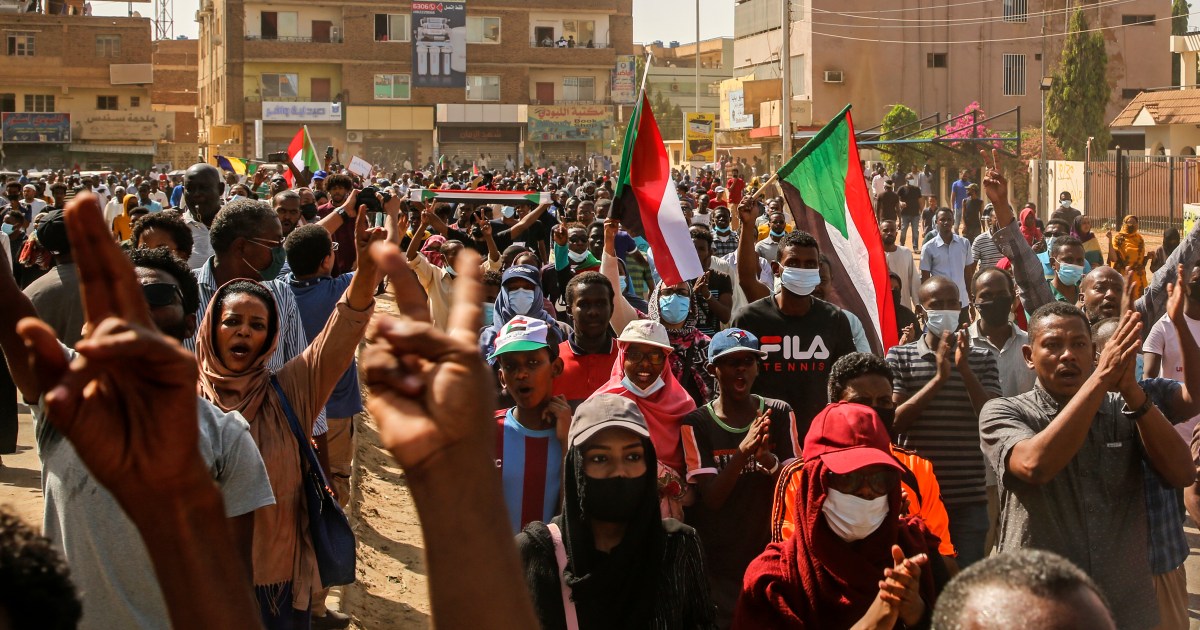The British newspaper "The Guardian" published an article by journalistic writer Nasreen Malik in which she believes that the coup that took place in Sudan last week has wiped out all the gains made by the Sudanese people since the overthrow of Al-Bashir's military government in 2019.
Malik indicated that the military coup dispelled the efforts made over the past two years to return Sudan to the international community after 3 decades of isolation and shattered the people's hopes of transitioning to civilian rule.
And she saw that the revolution revived hopes for the return of civil rule not only in Sudan, but throughout the Arab world, but it has now become clear - after it is too late - that the shortness of its life was inevitable.
She said Sudan's uprising had succeeded in overthrowing former President Omar Hassan al-Bashir, who left behind a deeply rooted military and security state with complex economic interests.
And when it became clear to the military that the Sudanese people would not accept another fictitious military leader to replace Al-Bashir, they reached an agreement with the civilian parties to share power in a transitional phase that should have paved the way for democratic elections.
The writer considered that the perception that prevailed that the military would hand over power after the transitional period and return to its barracks was naive in the eyes of some, and on the other hand, there were no indications that the military would stage a coup, as happened now.
Malik said that the coup blocked attempts to return Sudan to the international community, and that the cancellation of $700 million in aid by the United States only about 24 hours after the coup had hurt the Sudanese economy.
But those sanctions do not matter to the army, whose rulers do not need the prosperity of the country in order to prosper.
And she saw that an alliance between an army of mercenaries, the Rapid Support Forces - which is the official and unified version of the Janjaweed that terrorized the Darfur region - and the Sudanese army, and the remnants of the Bashir regime from those with commercial interests, has now tightened its grip on Sudan and they will manage it as they like.
The writer said that there is a fear that the absence of accountability and transparency will enable Sudan's new rulers to divide the country's infrastructure, seize its raw resources such as gold, and sell them to their regional allies.
The article pointed out that the revolutionaries who took to the street last week to protest the coup were beaten and shot, and others were killed and wounded in the streets of various Sudanese cities.
Malik concluded in her article that the army and its allied security forces have two options now in the worrying confrontation with the Sudanese people.
Either submit to the will of the people or kill them, and the army may think that there is a third option;
It is working to buy time in the hope that the momentum of the popular protests will abate with the new military government taking over and stabilizing matters in power, but that option is excluded, according to Nasreen Malik.

